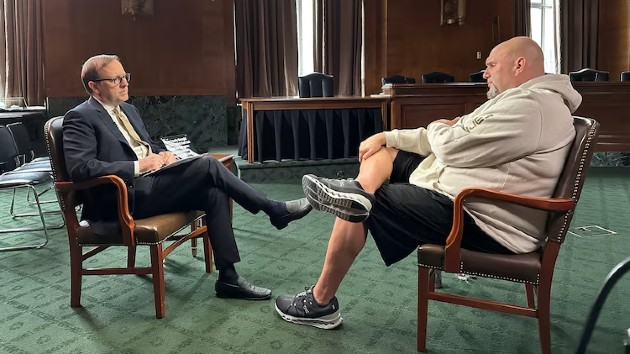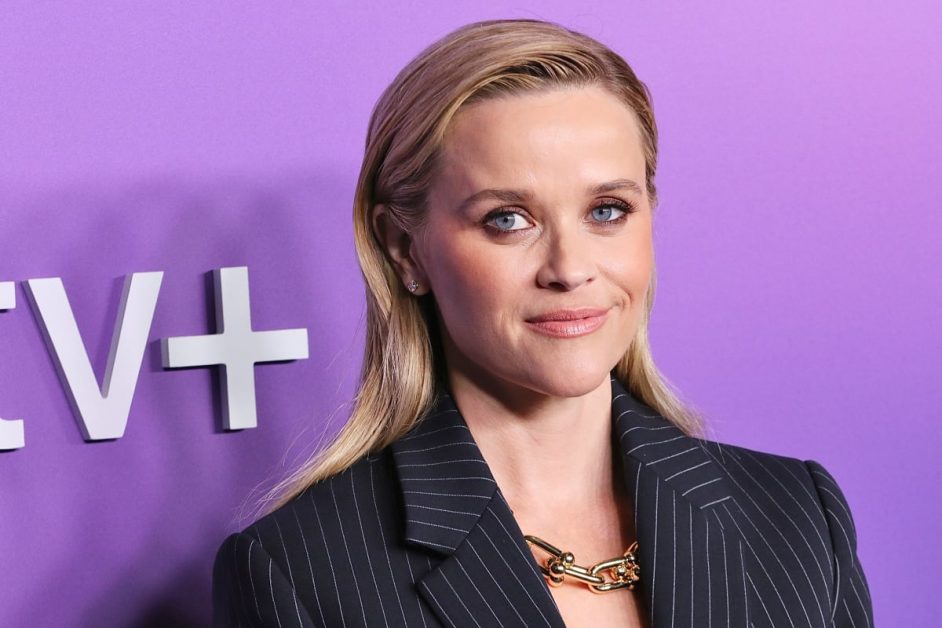This story contains spoilers for “The Last of Us” episode 2 and “The Last of Us” the video game. You can read our recap of episode 2 here.
The Last of Us episode 2: Tess’s death and the zombie kiss, explained
Written by on January 23, 2023
Toward the end of the second episode of “The Last of Us,” it is revealed that Tess, Joel’s partner in crime, has been infected. To make matters worse, a horde of zombies is en route to the trio’s location. As Joel and Ellie, the series’s protagonists, make a break for it, Tess stays behind to slow the zombies down by upturning a few barrels of gasoline and setting off a stash of grenades left behind by a group of smugglers and freedom fighters. But before she can spring her trap, she’s approached by a still-human-looking zombie, who kisses her on the mouth — with jellyfish-like tendrils reaching out of his mouth and squirming into hers.
My first reaction was disgust. My second: Why on earth did the show’s creators do that?
The sequence plays out differently in the show than it does in the game, where Tess is killed by agents of FEDRA, the authoritarian pseudo-government propped up in the aftermath of the zombie apocalypse. Here’s how showrunner Craig Mazin explained the change to Elise Favis, my former colleague, who recently interviewed him for The Washington Post.
“So I would ask Neil [Druckmann, co-creator of “The Last of Us”] a thousand annoying questions, especially early on,” Mazin said. “And I remember one of the annoying questions I asked was, why are FEDRA soldiers all the way out here? If the open city is really, really dangerous, it seems like they’re really going way, way out of their way to find Tess and Joel. They might say, ‘hey, they did a terrible thing, but they’re just gonna get killed out there. So what do we care? We’re certainly not gonna let them back in. If we ever see their faces again, we’ll get them.’ And [Druckmann] was like, ‘Okay, that’s fair.’”
The creative team opted, instead, to use the episode as an opportunity to lay out some ground rules — for Ellie and the viewers alike.
“One of the needs we had was to show how the infected take over a city,” Mazin said. “How do they work? How do they infect? How many of them are out there? What kinds [are there]? And that naturally led to what made sense for that ending, which was for it to be infected rather than FEDRA soldiers. But you’ll see FEDRA soldiers again, just not in Boston.”
That might explain why zombies kill Tess instead of FEDRA, but beyond just the utility the showrunners, it’s worth considering what the updated scene does symbolically, and what the change means in the context of the story. What does a kiss mean? We can free associate here. Kisses can be romantic. They can symbolize love. They can be nonconsensual. There’s the kiss of Judas, the kiss of death, “Kiss from a Rose.” Remember “Cat Person?” Kisses can be tender, wet, bad, sloppy, bored. There are bisous, a playful French greeting that involves light kisses on the cheeks. Throughout history, kisses have meant a lot of things. So what does the zombie kiss mean here?
There are a few interpretations that I think a person can arrive at in reasonably good faith. It’s possible the showrunners of this horror drama TV show wanted a dramatic and horrifying body horror gross-out scene. But scratching the surface a bit, both the kiss and its tendrils give the sense that Tess is being welcomed into a new “community” of infected. There’s something reminiscent of Judas’s kiss in it too; it might signal that if Tess fails to detonate the explosives around her, she’ll eventually grow into a monster and go on to infect other people — going from someone attempting to save humanity by smuggling Ellie, into someone who will betray it.
Another possible meaning is relevant to Tess’s relationship with Joel. Before dying, Tess tells Joel she never asked him to feel the way she felt (meaning: to reciprocate her love). The zombie kiss is a grotesque inversion of what Tess seemed to want very badly from Joel: intimacy, closeness, oneness. But this closeness comes at a cost: a loss of both her identity and humanity.
There’s a last interpretation, one that’s less charitable. The kiss is clearly nonconsensual, a grim fictionalization of rape culture and the kind of brutish behavior so many people suffer even in our current non-apocalypse. (You can read this as thoughtful critique or thoughtless reproduction.) And perhaps the showrunners, who are men, did not think about whether it might be cruel or send a weird message to subject one of the show’s most prominent female characters (so far) to an even worse fate than she suffered in the game, and in a more lurid way at that.
These different interpretations can, of course, overlap. Meaning is messy, and you can choose to believe several of these at once. I would also caution that there probably isn’t a right interpretation, even if Mazin and Druckmann might have a preferred one. A good way of thinking about these readings is as stops on a metro line. You have your destination, other people have theirs, and at any given point, you can get right back on the line and go someplace else. And if, for example, later in the season, Mazin and Druckmann opt to kill other female characters with abandon and in similarly grotesque ways, you may hitch a ride from one interpretation to another.
Trying to parse the meaning of the kiss raises the question of how you watch TV. In the case of “The Last of Us,” I think there are roughly two types of viewers. There are those who buy into the fiction of the show and interpret the stuff that happens on screen very plainly, as a story. Then there are those who watch the show and see it as the product of hundreds of people’s work, and view the proceedings as borne of creators’ choices. It’s the difference between saying “I can’t believe Joel did X” and “Why did Mazin and Druckmann create an episode where Joel did X?”
Because The Last of Us franchise has existed for nearly 10 years, a lot of people are instinctively in the latter camp, having seen Druckmann in particular elevated from random game director to minor celebrity within video game culture. And my first reaction (ick!) leaned that way too. Why, I wondered, did these two creators opt for what seemed to be just a more disgusting televised death for Tess? Having spent some more time with the scene while working on my recap of the episode — and trying to think about it on its own terms — I think the way the show plays the scene is the second interpretation, the one that centers on Joel and Tess’s relationship. The whole episode is about their dynamic, and how Tess and Joel differ in their relation to Ellie.
With that spin, the scene reads as more than just a gross-out. And yet, I can’t help but feel disappointed. The search for a deeper meaning was fun as far as spending a few hours goes, but the seemingly correct interpretation isn’t that revelatory or interesting, which is why at first blush it feels like just a grisly, vaguely sexualized death of a major female character.
We already knew that Tess wanted more from Joel than she got. We already get the horrors of this apocalypse. But beyond that, for all its glances and gruffness, the show is light on meaningful characterization. Which is what makes settling on an interpretation so difficult — and reading the scene as grossness for its own sake so easy.
watch avatar the way of water full movie
watch avatar the way of water full movie
watch avatar the way of water full movie
watch avatar the way of water full movie
watch avatar the way of water full movie
watch avatar the way of water full movie
watch avatar the way of water full movie
watch avatar the way of water full movie






